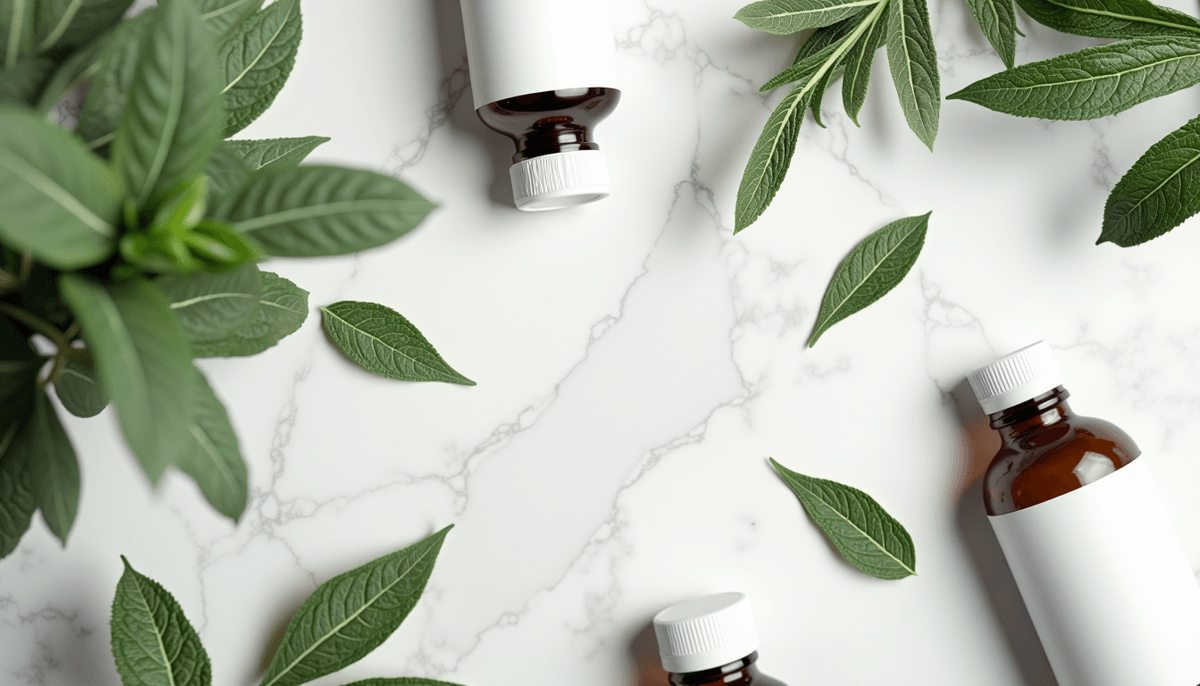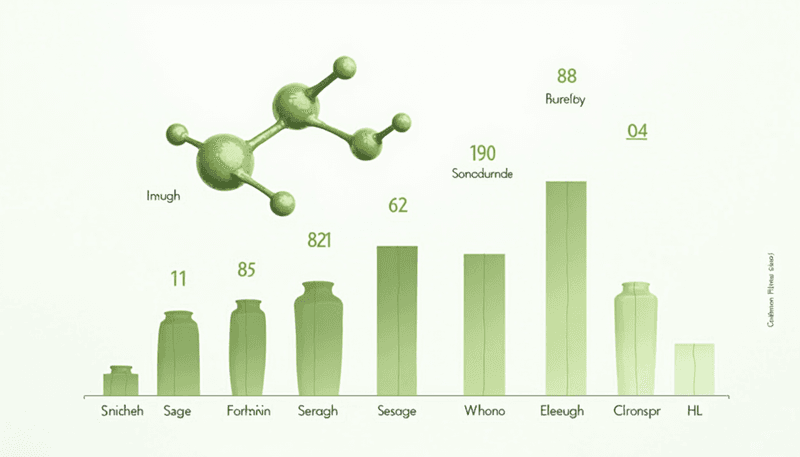Sage Supplements: What Science Really Says

As someone who's navigated the challenging waters of menopause, I understand the appeal of natural solutions for managing those frustrating symptoms. A recent scientific study has caught my attention, examining different sage supplements marketed for menopause relief. Let's dive into what the research reveals and what it means for those of us seeking natural alternatives.
Not All Sage Supplements Are Created Equal
The first striking insight from this research is that sage supplements can vary significantly in their composition. Think of it like coffee beans - while they're all coffee, the growing conditions, processing methods, and final preparation can result in vastly different cups of coffee. Similarly, the study found that some sage supplements contained up to three times more beneficial compounds than others.
Have you ever wondered why some herbal supplements seem to work better than others, even when they contain the same herb?
What this means for you: When choosing a sage supplement, look for products that specify their polyphenol and flavonoid content. These are the beneficial compounds that may help with menopause symptoms. Some manufacturers provide this information on their websites or upon request.
Safety First: The Thujone Factor
One of the most reassuring findings was about thujone, a compound in sage that can be potentially harmful in high doses. The study found that all tested supplements had extremely low or undetectable levels of thujone - well below safety limits. This is like finding out your favorite herbal tea has had any potentially problematic compounds carefully removed while keeping all the good stuff.
Key takeaway for safety: Look for supplements that specifically mention "thujone-free" or "low-thujone" on their labels. This indicates the manufacturer is aware of safety concerns and has taken steps to address them.
The Power of Polyphenols Beyond Hot Flashes
Perhaps the most fascinating discovery is how sage's benefits extend beyond just helping with hot flashes. The polyphenols and flavonoids in sage supplements appear to work through multiple pathways in our bodies, potentially helping with:
- Memory and cognitive function
- Mood stability
- Bone health
- Cardiovascular protection
"It's not just about managing hot flashes - think of sage as your multitasking friend during menopause."
As someone who initially started taking sage supplements just for hot flashes, I was pleasantly surprised to notice improvements in my mental clarity and overall well-being. The science now helps explain why!
Practical Application Tips:
- Start with a lower dose and gradually increase
- Take consistently for at least 4-6 weeks to evaluate effects
- Keep a symptom diary to track improvements
- Choose supplements from reputable manufacturers who provide detailed product information
Conclusion: Making an Informed Choice
The research clearly shows that while sage supplements can be beneficial for menopause symptoms, quality matters significantly. The best products will be those that are standardized for their polyphenol content and transparent about their thujone levels.
Your Action Plan:
- Research supplement manufacturers' testing and standardization practices
- Request polyphenol content information if not readily available
- Start with a product that explicitly states its thujone content
- Monitor your symptoms systematically
Ready to try sage supplements? Start by choosing one high-quality product and commit to tracking your symptoms for one month. What changes will you notice?
Remember, while herbs like sage can be powerful allies during menopause, they're part of a broader approach that should include healthy lifestyle choices and regular consultation with healthcare providers. Your menopause journey is unique, and finding the right combination of supports is key to navigating this transition successfully.

Olivia Rose Chen-Martinez
Olivia Rose Chen-Martinez is a seasoned health and wellness writer with a focus on women’s health issues, including PCOS, perimenopause, and holistic wellness. With a background in Journalism and Public Health from UC Berkeley, Olivia draws on over 15 years of writing experience to deliver empathetic, research-backed insights. Her work blends personal anecdotes and actionable advice, resonating with readers seeking accessible and trustworthy information. Based in Austin, Texas, Olivia is also a certified yoga instructor and a dedicated advocate for balanced, integrative approaches to women’s health.






